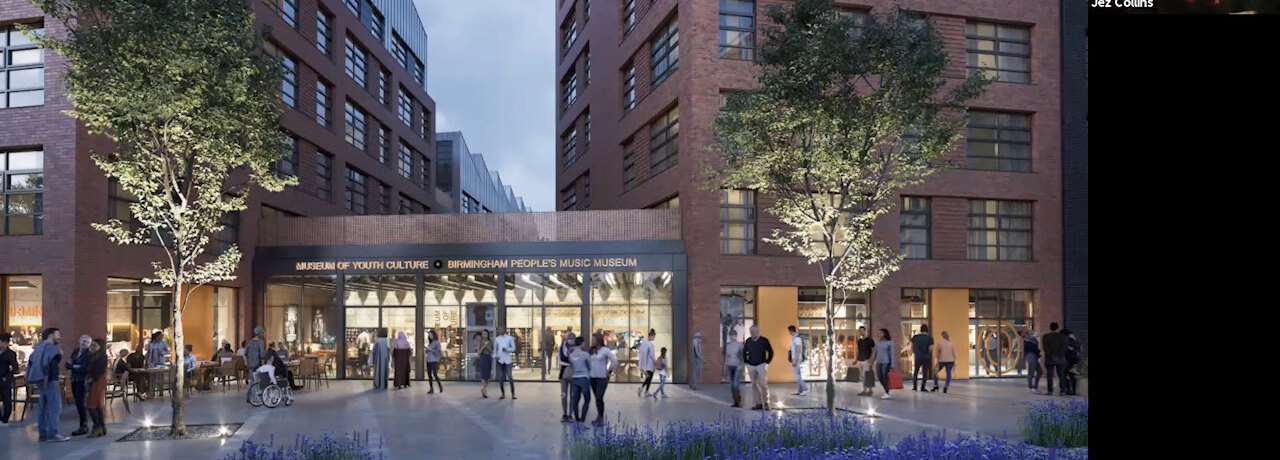
Disruption – Theme update, Jan 2021
During the academic year 2021/2022, researchers in the BCMCR will be producing work exploring the theme “Disruption”. This blog post outlines some of the ideas emerging from the various BCMCR research clusters as colleagues consider collective and individual responses to the theme. We encourage participation from BCMCR and beyond – including external contributors, PhD researchers, and students at all levels.
After the launch of the 2021/2022 theme in October 2021, meetings were held with the various research clusters contained within the BCMCR structure. This was an opportunity for colleagues to discuss the possibilities of using ‘Disruption’ as a means of reframing or reconsidering their own work and intellectual projects in terms of ideas related to the theme.
Some of the ideas presented below will – it is hoped – form the basis for short, written pieces that will be drawn together into a series of BCMCR ‘New Thinking’ zine publications, which in turn may be developed into more substantial outputs to be published as journal articles and book chapters, or as part of the edited collection planned as the final output of the Disruption theme. Finally, there are some ideas that may take the form of events, collaborations with partner organisations, or as online, interactive documents.
Some of the areas identified by clusters to date are as follows:
Academic Publishing: One of the key outputs of previous BCMCR themes has been an edited collection of work, published through well-known players in the academic publishing space. Several clusters pointed out that this is a space where ideas of disruption and change need to be considered, and – more pertinently – where our response to the theme may need to tread carefully. In short, colleagues wanted to be free to critique and – if possible – disrupt some of the practices of academic publishing (e.g. a reliance on free, unpaid peer review labour; the fees associated with Open Access, etc.), but felt that this did not necessarily square with an output that would be produced using exactly the practices under scrutiny. This is entirely correct, and indeed BCMCR already has an emerging track record with alternate academic publishing practice (see: Riffs, Makings, the Songwriting Studies Journal) and have made outputs available via alt-ac platforms such as Research Catalogue: these existing practices can be built upon and developed as the centre considers its collective response to issues associated with publishing.
Whose Disruption is it anyway?: Another idea emerging across clusters was the idea of who benefits from disruption and disruptive practices, with particular focus on demagoguery and populism in the political sphere, and on the companies and organisations operating ‘disruptive’ business models in the online space. Relatedly, a consideration of the qualitative experience of disruption – in other words, when users of systems and/or grassroots individuals and organisations engage in disruptive practices either as a form of entertainment or protest.
COVID and future disruptions (e.g. climate change): Understandably, the disruptions experienced by researchers in the work and personal lives over the last two years have informed individual and collective responses, and at the heart of this across the centre are questions around how and why doing things differently may be possible/impossible, advantageous, necessary, or even urgent, either in their cluster-focussed work or in more general societal terms. Relatedly, the pause to ‘normal’ practices caused by COVID provided a space and time to think about how and why we did certain things, and the opportunity to change them, whilst at the same time the desire and rush to ‘return to normal’ closed off certain possibilities. Many researchers in the centre want to use the theme to interrogate those tensions.
Two final ideas that may eventually see the light of day include:
The Anonymous Academic (working title): A de facto ‘confession box’ where ‘disruptive’ ideas and/or critiques of academic and institutional practices and conditions can be shared publicly. It is a hope that the theme provides a space and motivation for colleagues to be brave, outspoken and ‘disruptive’ in terms of matters related to academic practice. However, and for a variety of reasons, it is not always advantageous to be outspoken. The Anonymous Academic provides a space where critiques can be shared.
The Bid Graveyard (working title): A repository of failed or stalled funding bids which colleagues can. Ideas for funded projects can stall or fail for a variety of reasons – either falling down at planning or conceptual stage, through to failing to secure funding after a formal application is submitted. In some cases, those project ideas are repurposed and redeployed towards other funding streams, but in many cases the ideas behind the projects stall along with the failed pursuit of support. The Bid Graveyard affords a space to record those project ideas, but also a space in which to reflect on the nature and processes of academic funding, potentially leading towards alternate practices.
